
Disturb Verb Forms Past Tense, Past Participle & V1V2V3
5 meanings: 1. to intrude on; interrupt 2. to destroy or interrupt the quietness or peace of 3. to disarrange; muddle 4. to.. Click for more definitions.
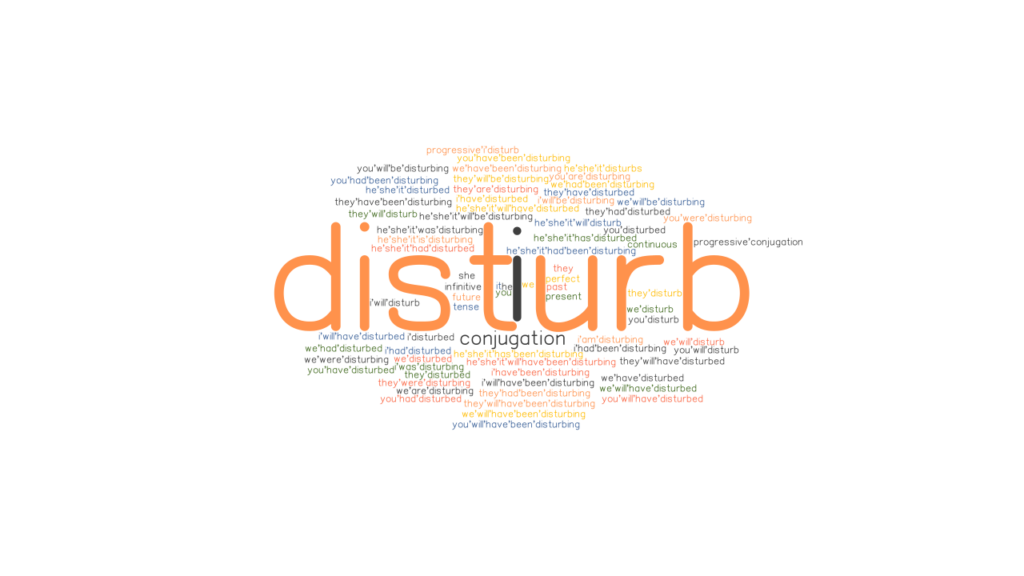
Disturb Past Tense Verb Forms, Conjugate DISTURB
Definition of disturb verb in Oxford Advanced American Dictionary. Meaning, pronunciation, picture, example sentences, grammar, usage notes, synonyms and more. Toggle navigation.. 2 disturb something to move something or change its position Don't disturb the papers on my desk.
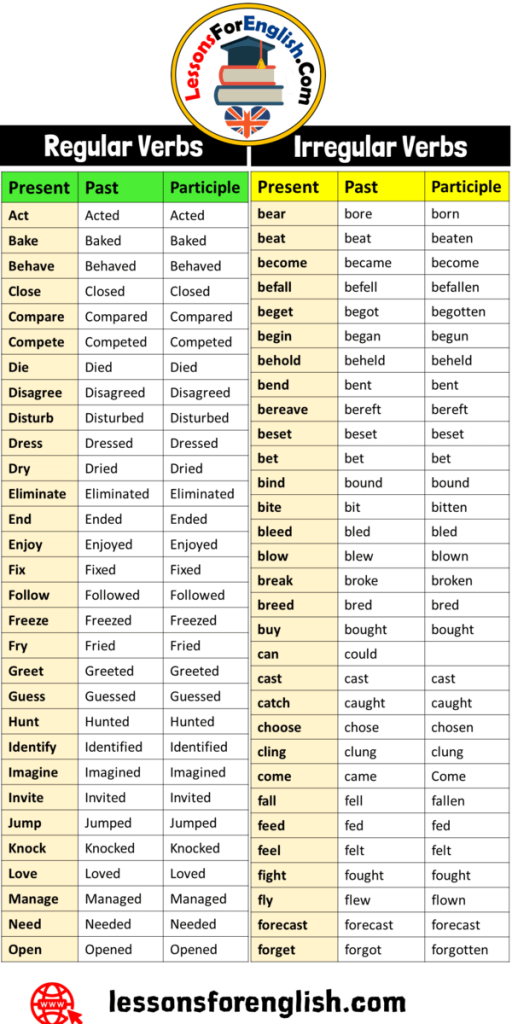
60 Regular and Irregular Verbs, V1 V2 V3 V4 V5 List Lessons For English
3rd p. sg. he will have disturbed. she will have disturbed. it will have disturbed. 1st p. pl. we will have disturbed. 2nd p. pl. you will have disturbed. 3rd p. pl. they will have disturbed. future perfect progressive. 1st p. sg. I will have been disturbing.

Verb forms in english bdavalues
Disturb Verb 1 2 3, Past and Past Participle Form Tense of Disturb V1 V2 V3. disturb. Meanings; Interfere with the normal arrangement or functioning of.(transitive verb). Yawn Verb 1 2 3, Past and Past Participle Form Tense of Yawn V1 V2 V3; Categories. Abbreviations (1) Active & Passive Voice (1) Adjectives (9) Adverbs (4) Antonyms (2)

Conjugation Disturb 🔸 Verb in all tenses and forms Conjugate in past
Verbs; To Disturb Conjugation; To Disturb Infinitive: to disturb Gerund: disturbing Past participle: disturbed Simple past: disturbed Irregular forms Auxilliary verb Spelling change Use contractions. Positive Negative. Indicative. Positive Negative. Present. I disturb I disturb:
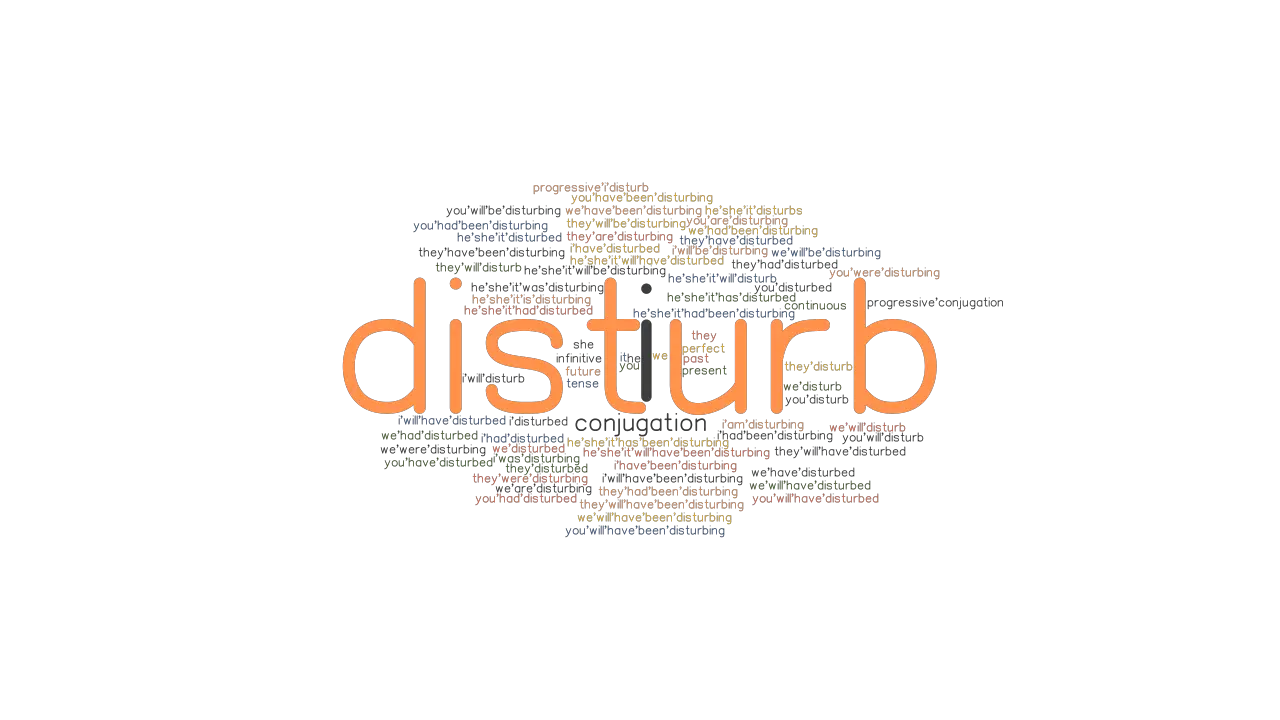
Disturb Past Tense Verb Forms, Conjugate DISTURB
DISTURB definition: 1. to interrupt what someone is doing by making noise or annoying them: 2. to make someone feel…. Learn more.
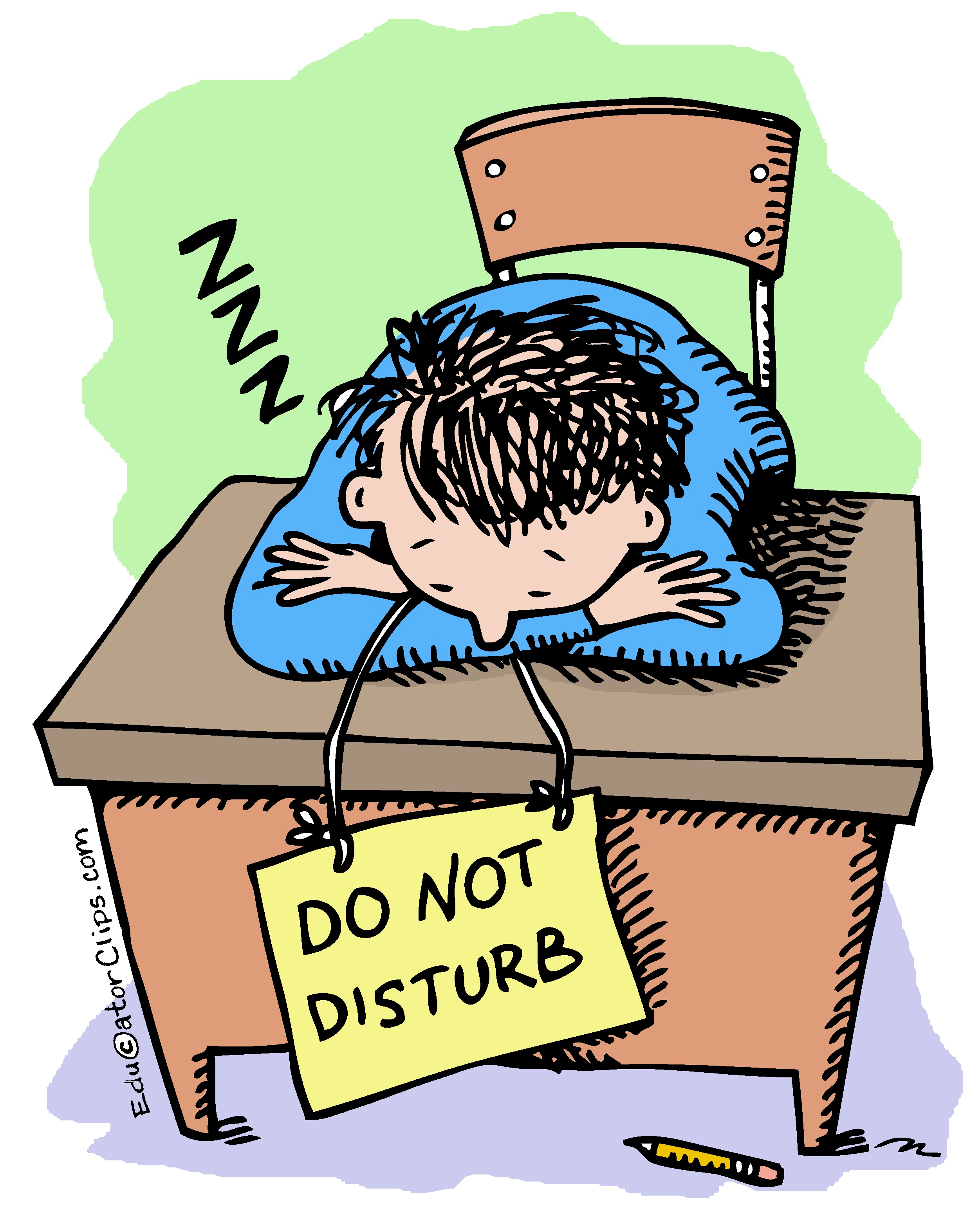
disturb clipart 19 free Cliparts Download images on Clipground 2023
Conjugate the English verb disturb: indicative, past tense, participle, present perfect, gerund, conjugation models and irregular verbs. Translate disturb in context, with examples of use and definition.
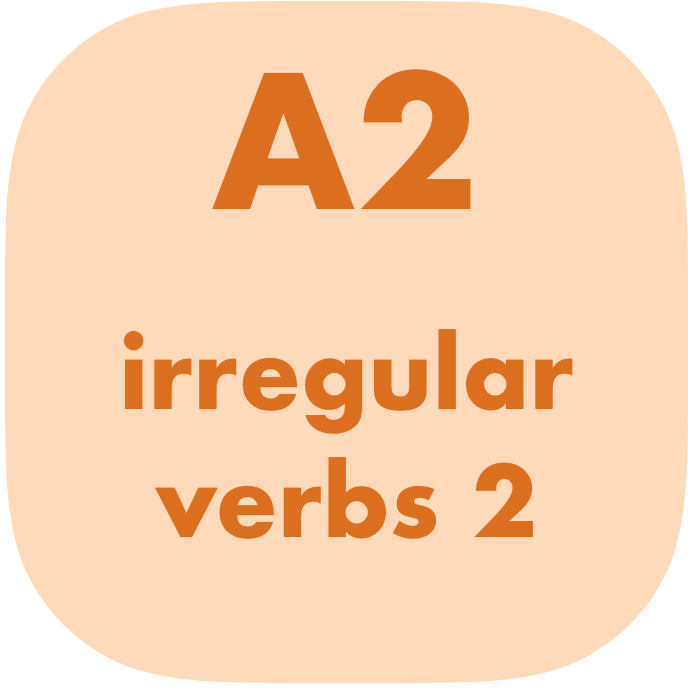
irregular verbs 2 English Should Be Fun
The earliest known use of the verb disturb is in the Middle English period (1150—1500). OED's earliest evidence for disturb is from around 1230, in Ancrene Riwle. disturb is a borrowing from French. Etymons: French destorber. See etymology. disturb, v. meanings, etymology, pronunciation and more in the Oxford English Dictionary.

Verb Forms v1 v2 v3 v4 v5 pdf V1, V2, V3, V4, V5 Pdf When learning
DISTURB meaning: 1. to interrupt what someone is doing: 2. to break the law by behaving unpleasantly and noisily in…. Learn more.

disturb 6 verbs similar to disturb (sentence examples) YouTube
Scroll down and tap Chimes. Turn Chimes on. Tap Schedule and set the chimes to play on the hour or every 30 or 15 minutes. Tap Sounds and change the chime to Birds or Bells. You can also adjust these settings from your iPhone. On your iPhone, open the Apple Watch app, go to the My Watch tab, tap Accessibility, then tap Chimes.
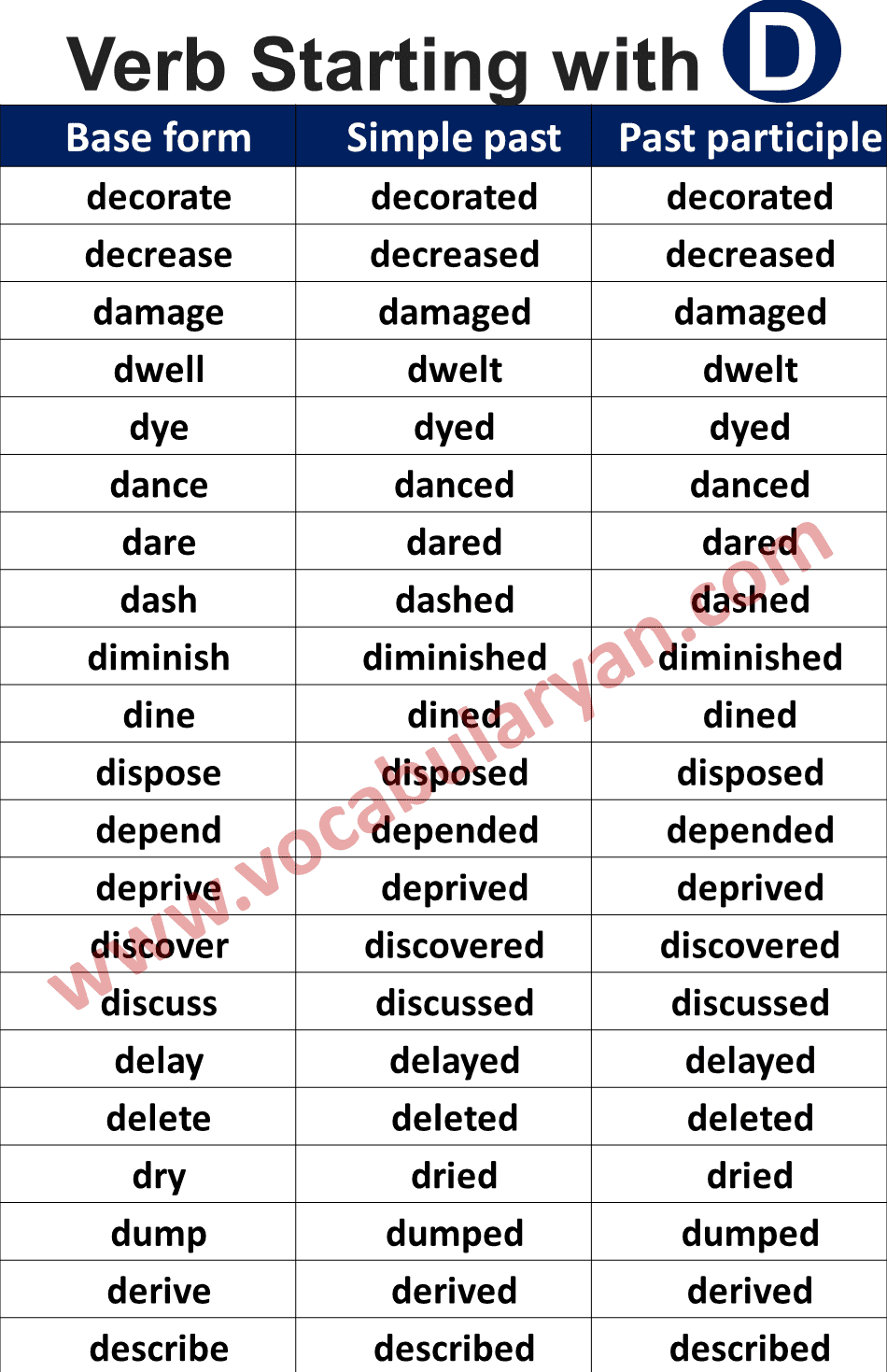
Verbs Forms List A to Z with PDF VocabularyAN
Conjugate the verb disturb in all tenses: present, past, participle, present perfect, gerund, etc.

Past Tense of Break, Past Participle of Break, V1 V2 V3 V4 V5 Form of
Synonyms for DISTURB: bother, distract, worry, alarm, concern, unsettle, agitate, annoy; Antonyms of DISTURB: settle, calm, quiet, soothe, compose, alleviate, allay.

complete conjugation of the verb to disturb, to trouble in Levantine
disturb: [verb] to interfere with : interrupt. to alter the position or arrangement of. to upset the natural and especially the ecological balance or relations of.
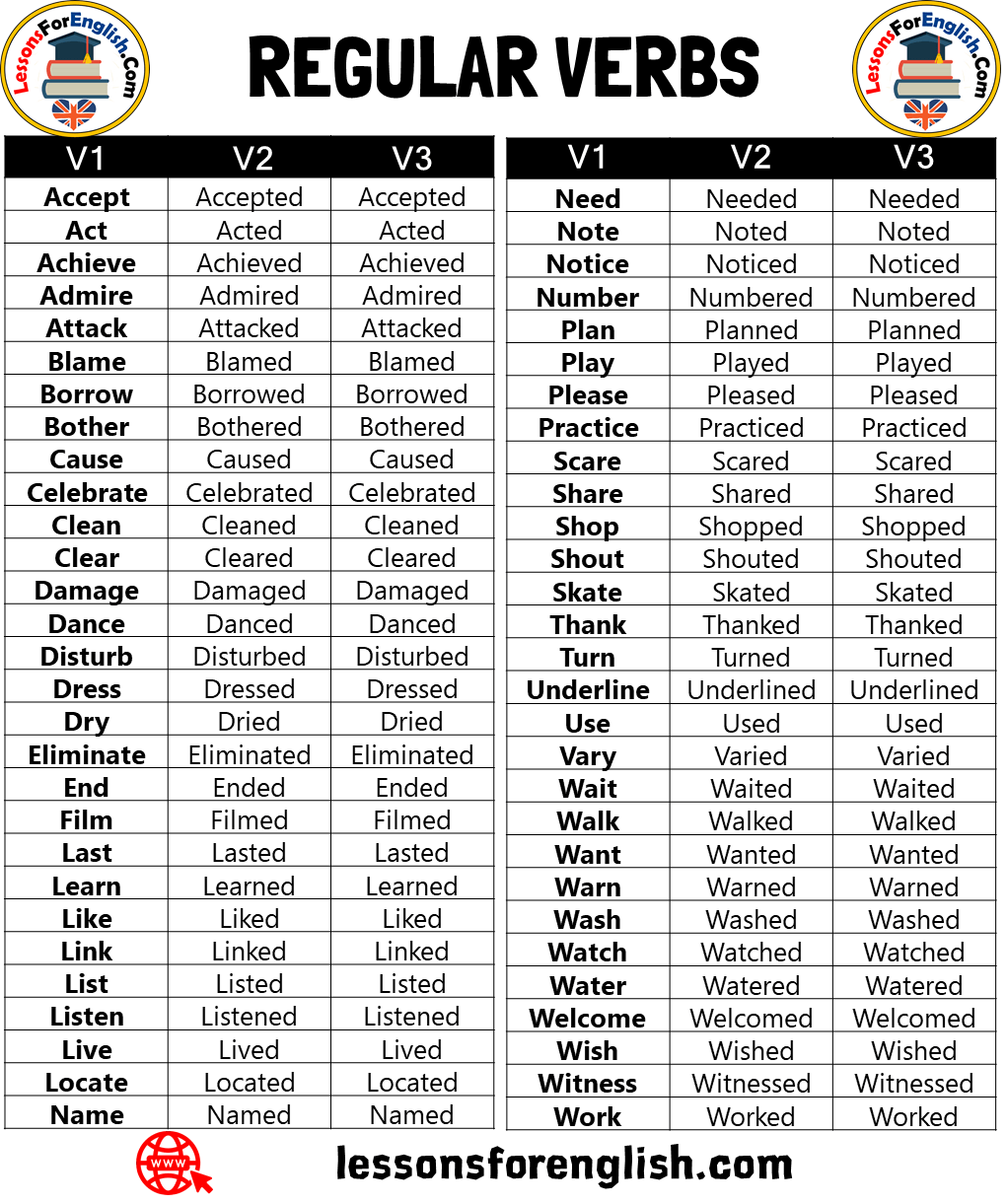
REGULAR VERBS List in English, V1 V2 V3 List Lessons For English
adverb. There was a disturbingly high number of crimes last year. Disturbingly, the story is true. DISTURB meaning: 1 : to stop (someone) from working, sleeping, etc. to interrupt or bother (someone or something); 2 : to worry or upset (someone) often used as (be) disturbed.

Phrasal verbs 2 English ESL powerpoints
He/She/It disturbed your celebration. You/We/They disturbed your celebration. Simple Future Tense. I will/shall disturb your celebration. He/She/It will disturb your celebration. You/We/They will/shall disturb your celebration. Present Continuous Tense. I am disturbing your celebration. He/She/It is disturbing your celebration.

Pin on English tenses
Verb [ edit] ( transitive) to confuse a quiet, constant state or a calm, continuous flow, in particular: thoughts, actions or liquids . The noisy ventilation disturbed me during the exam. The performance was disturbed twice by a ringing mobile phone. A school of fish disturbed the water. ( transitive) to divert, redirect, or alter by disturbing.